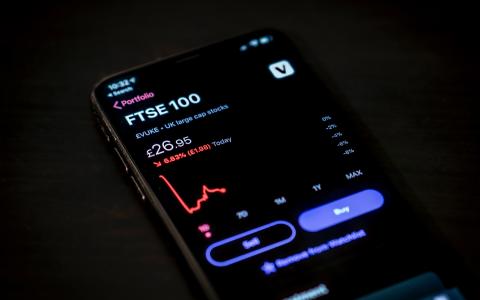
Mobile technologies have been the driving force for ever faster and better computer technologies for the past two decades. Faster and smaller chips, display technologies, and wireless communications are all able to function on tiny amounts of electric power drawn from ever more advanced batteries.
In a future that is very much going to be stay-at-home and work-from-home, these costly mobile technologies are nice to have, but they aren't essential. The home has plenty of electric power. There is always a plug nearby.
Yet every single laptop component has to be specially made to operate on battery power, and the main mobile chips have to be made in advanced chip fabs costing as much as $3 billion each.
ROOM-TO-ROOM MOBILITY
Why buy a laptop -- such as Apple's stellar new models based on its M1 chip, which offers more than 20 hours of unplugged operation -- when you only need enough battery power to work from the garden for a couple of hours or from bed?
A desktop offers far more performance for the same price as a notebook. Or, to put it another way: A desktop is nearly half the price of a comparable notebook.
In our COVID-19 world, we are seeing an explosion in remote home-based work -- and this way of working will not be going away anytime soon. Even in a much safer world, it will be the norm at many businesses (although the office will continue to exist, in my opinion).
HOME-BASED MOBILITY
And what future for mobile phones? Working from home makes having a cell phone awkward. I still have to carry it about, or I have to keep running over to it to make sure I haven't missed anything, and I keep putting it down somewhere that's not easy to find. I certainly don't need the latest digital phone if I'm not going to be out and about for 10 hours a day.
A mobile phone is not that useful when you aren't that mobile. Instead of upgrading my iPhone last year, I bought an Apple Watch -- which is much more handy around my apartment, acting as a home-mobility technology. I no longer have to carry my phone at home and forget where I left it last. The watch even helps me find my phone. It is acting as a home-mobile phone.
INTEL CATCHES A BREAK
A rise in desktop sales would be welcome news for Intel, which has struggled to produce low-power consuming chips that can compete with the British-designed ARM processor that uses very little sips of battery power and is the technology on which Apple has built its impressive M1 chip.
DEFUSING INTERNATIONAL TENSIONS
A trend toward desktop or wired technologies would lessen the rush in building advanced chip production facilities -- which has become a hot political issue. The US and the EU have recognized it as a critical technology and each has pledged to build advanced chip fabs in their geographies rather than rely on potentially vulnerable Asian manufacturers. It will be hugely expensive.
The cutting edge in volume chip production currently is held by TSMC in Taiwan -- at 5 nanometers (nm), and Samsung is close behind. Intel is struggling to move down to 7nm from 10 nm. The smaller the number of nanometers, the faster your chip runs and the less power it consumes because the electrons travel shorter distances.
TSMC has promised to build its next advanced chip fab in Arizona -- the cost will be a staggering $12 billion.
CHEAPER FASTER BETTER
If batteries aren't a limitation, such as in the home office, then there's no problem building super-fast desktops based on powerful microprocessors that cost far less than their mobile version. This is also true for all the other desktop components: They don't need to be built on a cutting-edge chip process because they don't need to run on battery power.
And also the display -- a big power-hungry component in laptops -- is much better looking and performing if it doesn't need to be mobile.
The rise of the desktop is likely inevitable given our current and projected working circumstances. The COVID-19 pandemic has forced many changes in behavior, some of them likely will be permanent. We will see future emergencies, outbreaks that might be nipped in the bud. However, our new isolationist ways of living and working are not temporary and will continue that way for many people and businesses.
STATIONARY TECH
We learned many things due to COVID-19, such as: When you are talking, you are spitting; video meetings are as annoying as real meetings; online shopping is brilliant; and there's less motivation to buy a new laptop or upgrade a mobile phone when a desktop and a digital watch is much more useful in a stationary world.
This article originally appeared ZD Net.



